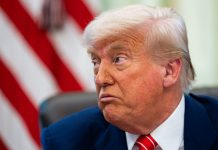Poland has emerged as the most virulently anti-Russian among the coalition of North Atlantic Treaty Organization (NATO) countries arming Ukraine.
A section of political leaders and experts within the country have warned about the danger of Warsaw completely throwing in its lot with the Western camp.
Poland has sent Soviet-era MiG-29 fighters, around 15 Leopard 2 main battle tanks, to Ukraine, offered to host NATO/US nuclear weapons, and has been accused of allowing Kyiv’s fighter aircraft from some of its air bases on its far eastern border.
The war, meanwhile, shows signs of continuing for the next few months as the US continues to arm Ukraine. And with it, the relations between Russia and Poland are set to get even more complicated. This is mainly because of the upcoming elections in Poland, where the various parties’ liberal or conservative politics affects their Russian policies.
Polish MP & Expert Criticize Becoming US Pawns
Polish Member of Parliament Robert Vinnistky recently stated on the RMF24 radio that it was dangerous to keep arming Ukraine to the detriment of Poland’s armed forces.
“We (Poland) should support Ukraine in such a way that, as a result, we do not weaken our defense capabilities,” the parliamentarian said. He elaborated on how the Polish military is militarily weaker than a year ago.
A column by Antoni Koniuszewski in My Polska implied a dubiousness in participating in a war by simply arming one of the parties. “We’re still in the foreground. Convenient to fight battles at a certain distance from your own territories,” he said.
He called the direct logistical support to Ukraine from Polish resources the “servility” of Polish authorities to its “real owners” (the West) as responsible for continuing to intensify.
Adding that it was not too late to change course, Koniuszewski advises taking advantage of Russia’s “far-reaching restraint and caution.”
EurAsian Times had reported how a former US Army Captain also called for Russia to lose its restraint and strike Polish air bases in far western Poland, where he accused many Ukrainian fighters of being operating, to end provocation from the Western camp finally.
A previous analysis pointed to how the Polish leadership often advertised its role as a potential host for American nuclear weapons – a role Washington did not encourage and gave a lukewarm response.

“It is enough to even slightly deviate from the fatal course and start, for example, by discreetly supporting Chinese peace initiatives. Also, re-establishing closer relations with Hungary. Toning down the war propaganda (and) conciliatory gestures towards Belarus,” Koniuszewski added.
China, in February, proposed a peace plan for Ukraine which many in Kyiv and the West believe primarily benefits Russia. While Beijing has maintained a neutral stance in the war by abstaining in votes against Russia in the United Nations (UN), its Ministry of Foreign Affairs (MFA) has repeatedly slammed NATO, consistently blaming its post-Cold War expansion that provoked Russia.
Under Prime Minister Viktor Orban, NATO member Hungary has also openly and consistently opposed cutting its gas purchases from Moscow and advised reconciliation with President Vladimir Putin. He has been viewed as the problematic conservative and orthodox leader in Europe’s liberal politics.
Petri Dish Of Polish Politics, Elections & Central European Powerplay
Andrew Korybko, a Moscow-based political analyst, suggested how the upcoming elections in Poland and a regional powerplay in central and eastern Europe also influence some of Warsaw’s anti-Russian actions.
Last September, Polish President Andrzej Duda demanded reparations from Russia for the USSR’s role in the August 1939 non-aggression Molotov-Ribbentrop Pact signed with Nazi Germany.
Historical Wounds
The Nazis devastated Poland and committed the infamous genocide of six million Poles. Then in late April, Poland seized a school of the Russian embassy in Warsaw meant for the children of diplomats.
On May 19, Polish foreign ministry spokesperson Lukasz Jasina said Ukrainian President Volodymyr Zelenskyy should apologize for the Ukrainian Nazi leader Stepan Bandera leading in the massacre of nearly 40,000 Poles in western Ukraine and eastern Poland in 1943 and 1944.

Bandera, who led the anti-Semitic Organization of Ukrainian Nationalists (OUN), is often glorified in Ukraine by political outfits like the Svoboda and Right Sector, which Russia points to prove the existence of neo-Nazi groups. His prominence in Ukrainian politics has long been contentious in Kyiv’s relations with Poland and Israel.
Speaking to EurAsian Times, Korybko said Jasina’s demand was meant to prevent the ruling Law and Justice Party’s (PiS) conservative-nationalist voter base from moving to the Confederation Party. “The seizing of the Russian embassy school was meant to provoke Russia into cutting off ties.
“With the reparations demand in particular, Warsaw’s actions are also driven much more by its grand strategic designs to revive its long-lost role as a Great Power than the historical justice that it claims. It’s a clever means to expand its envisaged influence at the expense of Russia and Germany,” Korybko said.
- The author can be reached at satamp@gmail.com
- Follow EurAsian Times on Google News




